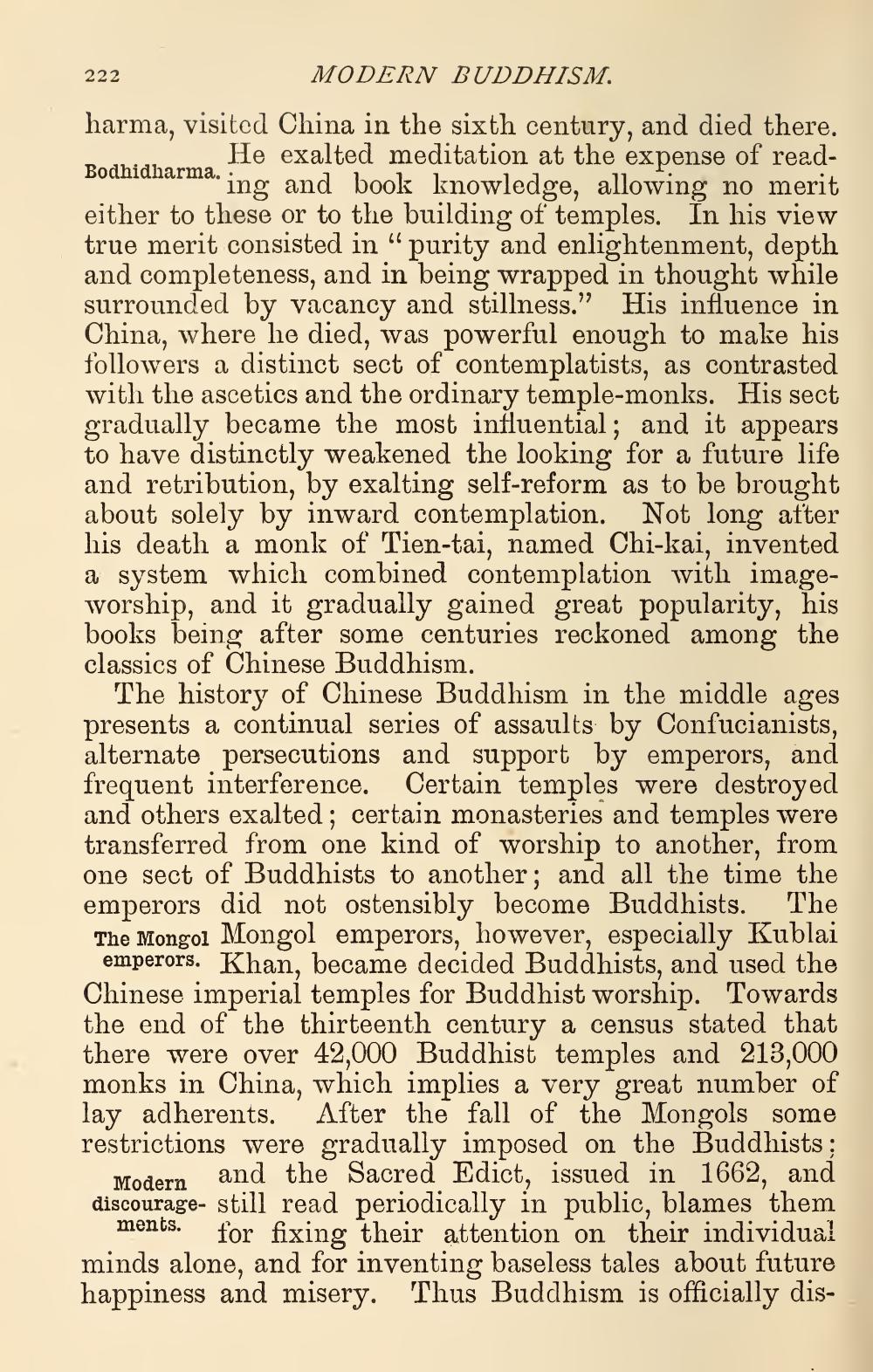________________
MODERN BUDDHISM.
harma, visited China in the sixth century, and died there. He exalted meditation at the expense of readBodhidharma. ing and book knowledge, allowing no merit either to these or to the building of temples. In his view true merit consisted in "purity and enlightenment, depth and completeness, and in being wrapped in thought while surrounded by vacancy and stillness." His influence in China, where he died, was powerful enough to make his followers a distinct sect of contemplatists, as contrasted with the ascetics and the ordinary temple-monks. His sect gradually became the most influential; and it appears to have distinctly weakened the looking for a future life and retribution, by exalting self-reform as to be brought about solely by inward contemplation. Not long after his death a monk of Tien-tai, named Chi-kai, invented a system which combined contemplation with imageworship, and it gradually gained great popularity, his books being after some centuries reckoned among the classics of Chinese Buddhism.
222
The history of Chinese Buddhism in the middle ages presents a continual series of assaults by Confucianists, alternate persecutions and support by emperors, and frequent interference. Certain temples were destroyed and others exalted; certain monasteries and temples were transferred from one kind of worship to another, from one sect of Buddhists to another; and all the time the emperors did not ostensibly become Buddhists. The The Mongol Mongol emperors, however, especially Kublai emperors. Khan, became decided Buddhists, and used the Chinese imperial temples for Buddhist worship. Towards the end of the thirteenth century a census stated that there were over 42,000 Buddhist temples and 213,000 monks in China, which implies a very great number of lay adherents. After the fall of the Mongols some restrictions were gradually imposed on the Buddhists; and the Sacred Edict, issued in 1662, and discourage- still read periodically in public, blames them ments. for fixing their attention on their individual minds alone, and for inventing baseless tales about future happiness and misery. Thus Buddhism is officially dis
Modern




